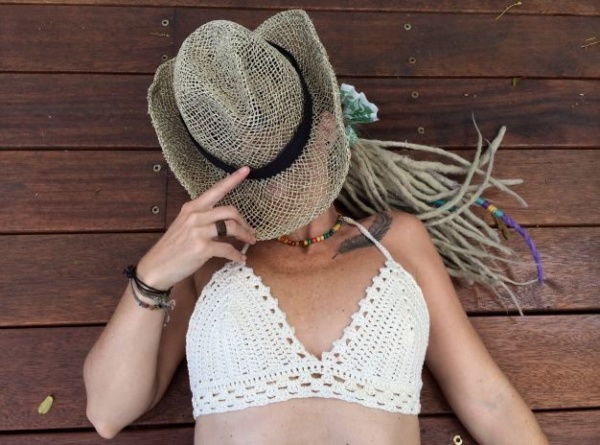By Boy Penulis
Back in 1960, dreadlocks were real hip. The hairstyle was introduced as a part of Rastafarian culture. Nevertheless the real use of dreadlocks can be traced back to centuries ago among others with the civilization of Maoris, Maasais, Pakistani's Sufi malangs and fakirs. As fashionable as dreadlocks are, it is recognized that caring for the dreadlocks is not easy; the matted, twisted, entangled hair makes it impossible to treat the hair in usual way. Dreadlocks cannot be brushed nor combed.
Generally, the problem in a person wearing dreadlocks is how to maintain the dread knots when new hair grows. Naturally grown hair is not intact to the twist and makes the dreadlocks look untidy and frizzy. Many beauty tricks suggest using bee-based wax to take care of this problem: a classic mistake. The usage of bee-based wax in inconsiderate amount only makes the hair ceased to make the dreads budding appropriately. Bee-based wax does not permit your hair to naturally lock your hair tightly. Wax can only be used for short term occasion such as tidying up your dreads for a party.
For daily use, dreadlocks washing can be taken care with hair products containing the essence of Aloe Vera and lime juice. Such product can easily wash your dreads. For more natural way, the appliance of fresh Aloe Vera directly on your dreadlocks or sprinkles of lime juice to your scalp works as well.
To maintain your maturing dreadlocks, daily rolling is the simplest procedure to do. From the top to your length of your dread, put a dread in your palm and roll it dynamically from side to side. Next, put the base of your dread between your thumb and forefinger then press them onto your scalp and roll it constantly in one direction roll. Never change the direction you are rolling.
Last but the most annoying problem a dreadlocks wearer commonly has is the itchiness of the scalp. This is a usual problem a person with dreadlocks has to face since the matted dreads lock in the heat between the hair and the scalp. A professional beauty product provides cooling spray with peppermint essence mixture to combat the trouble. Nevertheless, if you are a more back-to-nature of a person, you can make your own scalp relief spray by using cider vinegar sprayed neatly onto your itchy scalp. Let the vinegar stay for 15-20 minutes on your scalp, then thoroughly rinse out. You may not like the smell of it, but cider vinegar really helps the itch a lot.

